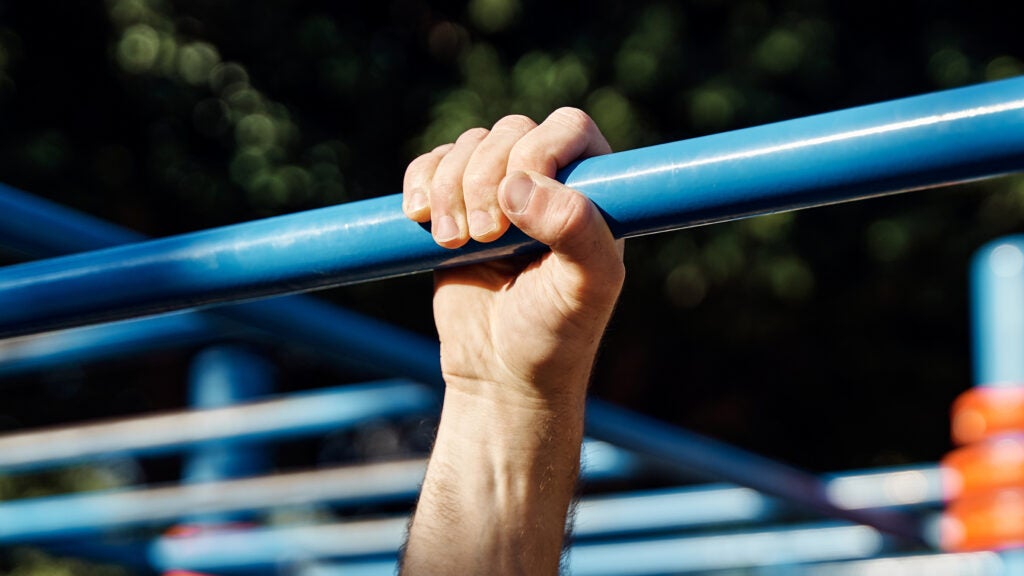Thanks to a wonky hamstring and some bad oysters, I’m currently coming back from a training hiatus of nearly a month. It’s an unfamiliar and somewhat unsettling feeling. So I have a lot of sympathy for Romuald Lepers, a French physiologist and dedicated triathlete who, in the name of science, agreed to take 12 weeks completely off training in 2022.
With the help of his colleagues, Lepers underwent a whole bunch of tests immediately after competing in the Swimrun World Championships in Sweden that fall. After 12 weeks of sloth, he repeated the tests. Then he resumed training and, 12 weeks later, repeated them a third time. The data is presented in a pair of papers in Frontiers in Physiology and JCSM Communications, offering a detailed look at exactly what happens when you lose then regain fitness, and raising a surprising and tantalizing possibility: maybe a long training break is actually good for you.
Two Theories of Aging
Lepers runs a lab at the University of Bourgogne in Dijon, and is one of the world experts on masters athletes, which typically refers to athletes over the age of 40. He’s also an accomplished triathlete. In his younger days, he placed in the top 150 at the Ironman World Championship in Kona. At the time of the study, he was 53, training 10 to 12 hours per week, and still consistently placing near the front of his age category in Ironman 70.3 races.
Over the course of more than three decades, he trained very consistently, never missing more than two weeks of training at a time. So he decided to run an experiment on himself to fill a gap in the literature. There have been various “detraining” studies over the years that measure the loss of fitness when you stop training. A classic 1984 paper, for example, saw a 16 percent reduction in VO2 max after 12 weeks; and this analysis estimated how much a training break of a week or more will affect your marathon time. But there’s very little data on older athletes.
There’s an important debate about fitness loss in older people. We know that it happens, and we know roughly how quickly it happens—on average, at least. Starting in your 30s, you’ll typically lose 0.5 to 1 percent of your VO2 max every year; you’ll also lose muscle mass at a similar rate. One view is that this happens gradually and inexorably. The other view, sometimes referred to as “punctuated equilibrium,” is that we decline at a much slower rate, but every once in a while we have mini-catastrophes—a prolonged bout of flu, a broken hip, a period of intense work or family stress during which we abandon all exercise habits—that lead to a sharp drop. Even if we resume normal training after one of these blips, we never quite make it back to our previous level, so these interruptions contribute disproportionately to our advancing decrepitude.
When you’re 20, you can take 12 weeks off and then, with a bunch of hard work, get right back to where you started. Lepers’s case study offers a test of whether the same is true in your 50s, or whether the body’s adaptive potential is so blunted that some of the losses become permanent.
What Happened After a 12-Week Training Break
The Frontiers in Physiology paper focuses on Leper’s changing fitness. Most notably, his VO2 max, as measured in a treadmill running test, dropped by 10.9 percent. In a similar test on an exercise bike, it dropped by 9.1 percent. That’s a big drop, equivalent to about 15 years of normal aging, but it’s on the low end compared to previous detraining studies. The penalty for time off in your 50s doesn’t seem to be any worse than in your 20s.
When he started training again, there was a surprise. After 12 weeks, his VO2 max didn’t just recover; it was better than when he started. In the running test, it was 4 percent higher than baseline; in the cycling test, it was 6 percent higher. There’s some inherent variability in VO2 max testing (and in all physiological testing, for that matter), but the fact that the same pattern showed up in the running and cycling tests suggests that the effect is real.
For a guy who’s been training and competing at a high level almost continuously for three decades, that’s an unexpected result. There are a couple of possible explanations. One is that his body composition changed. VO2 max is expressed relative to your body weight, so losing weight can create the illusion that you got fitter without changing your oxygen-processing abilities.
That’s not what happened here, though. His body did change: he initially gained 5.5 pounds of fat and lost 4.6 pounds of muscle. Then, after retraining, he lost 9.0 pounds of fat and regained 2.4 pounds of muscle. That meant his body fat went from 10.1 percent to 13.3 percent to 8.4 percent, with a net loss of 5.7 pounds by the end of the experiment. This explains some of the change in VO2 max, but not all of it: his overall oxygen-processing capacity still improved, independent of his weight.
The other possibility is that something changed within his muscles to make them more responsive to training. The second paper, in JCSM Communications, explores this possibility. Lepers underwent muscle biopsies at each stage of the experiment to measure the metabolic properties of his muscles. Detraining ramped up fast-twitch muscle activity and ramped down markers of mitochondrial function and aerobic capacity. Retraining mostly reversed the changes, and in some cases resulted in better-than-baseline muscle properties.
The details of what’s going on inside the muscles are fairly complex, and Lepers cautions that we shouldn’t read too much into a single case report. (That goes for all the findings; we have no idea if he’s just a freak.) But it’s interesting that the two sets of results seem to line up: the microscopic properties of his muscle and macroscopic fitness measures like VO2 max both declined with detraining then bounced back to be better than before with retraining.
So Should We All Take a 12-Week Training Break?
When I asked Lepers this question, he raised a couple of interesting points. One is that the psychology of taking such a long break went better than expected. He kept busy with work, ate normally, and didn’t stress because he knew that retraining would be a fun challenge. Crucially, he knew that once the 12 weeks were up he’d be able to start training again. That’s very different from, say, missing three months with a lingering injury where you’re never quite sure if it’s going to go away.
He also noted that many of his masters friends used to take long end-of-season breaks of a month or more when they were younger. But the older they get, the shorter and less frequent their breaks have become, presumably because they’re afraid that whatever fitness they lose they’ll never get back. If there’s one big headline finding from Leper’s self-experiment, it’s that this isn’t true, or at least wasn’t for him. That should help other masters athletes be a little less paranoid about the dangers of an occasional training break.
We can’t really claim, on the basis of a single case report, that taking 12 weeks off will enable you to break through and reach new levels of fitness. But even if you don’t return better than before, the idea that you can get back to your previous level is very reassuring. Over the years, I’ve found that I enjoy being fit, but what I really love is getting fit: the sensation of steady progress when week after week your times are dropping and your workouts are getting better. That feeling is increasingly hard to come by when you’ve been training for a long time. The best part of training breaks, from my perspective, isn’t vegging out on the sofa during the break; it’s getting back on the horse.
For more Sweat Science, join me on Threads and Facebook, sign up for the email newsletter, and check out my forthcoming book The Explorer’s Gene: Why We Seek Big Challenges, New Flavors, and the Blank Spots on the Map.
Source link










